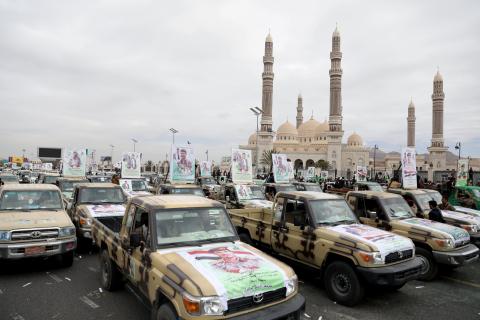Yemen: UNHCR Operational Update


IDP Response
The ongoing conflict in Marib continues to trigger displacements in Marib City and the surrounding districts. According to the Government of Yemen (GoY)’s Executive Unit, close to 5,000 families have recently become displaced and are being accommodated across several IDP hosting sites. UNHCR and partner Society for Human Solidarity (SHS) distributed tents for families and assisted some 450 newly displaced individuals, while UNHCR led training for partner staff on the ground to conduct needs assessments among households.
The results of the assessment will be used to inform UNHCR’s response, including cash assistance, psychosocial, legal support, child protection and specialised services to survivors of gender-based violence, and people with specific needs.
UNHCR has assessed some 55,850 families so far in 2020, with a total of 42,070 IDP families provided with emergency shelter and basic household items by August this year. According to the International Organisation for Migration (IOM), some 23,519 families have been displaced by conflict, natural disasters and others factors in 2020, with 45 per cent of those in Marib governorate.
So far this year, an estimated 62,500 families have been affected by heavy rains and floods across multiple governorates. Out of those, 53,000 families were identified as being in need of support. The Shelter Cluster has assisted close to half (some 26,000 families) so far. UNHCR continues to provide support where required as a last resort. Accordingly, UNHCR assisted over 780 families with emergency shelters and over 2,700 families with basic household items since the rains. However, despite the growing needs, the Cluster remains critically underfunded with only 15 per cent of the entire needs (USD 230 M) identified this year to provide response to conflict and natural disaster-related needs.
Following the death of a Yemeni woman from a stray bullet in Amran governorate following a local celebration, UNHCR-led led an awareness campaign through community-based protection network members at the Amran Community Center to address this traditional practice and the associated risks. In one district, the resulted in the signing of a tribal decree limiting random gunfire at events such as weddings.
Refugee Response
The cash support for refugees, both the regular and those affected by COVID-19 has begun. In Sana’a the assistance will be disbursed across three payments, targeting some 5,290 refugees and asylum-seekers. In the south, UNHCR started the second round of cash distribution to 8,200 refugees and asylum-seekers in urban areas. UNHCR staff were present at distribution points to monitor and address any complaints, and ensure COVID-19 hygiene and prevention measures remained in place. To date, 475,000 IDPs and 30,000 refugees have received cash. By the end of the year, some 1,300,000 IDPs and 40,000 refugees will have received cash support for a total of approximately USD 50 M, which includes COVID-19 response and winterization.

Aden — Yemen Airways has announced new updates to its ticket cancellation (VOID) policy, introducing financial penalties on travel agents in…

Geneva – The United States announced that Yemen will not be among the countries benefiting from a new $2 billion funding pledge for United Na…

Paris — The French humanitarian organization Acted announced that it has delivered cash assistance to nearly 89,000 people affected by displa…